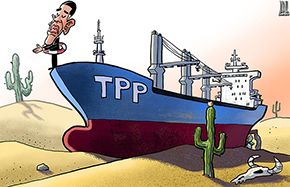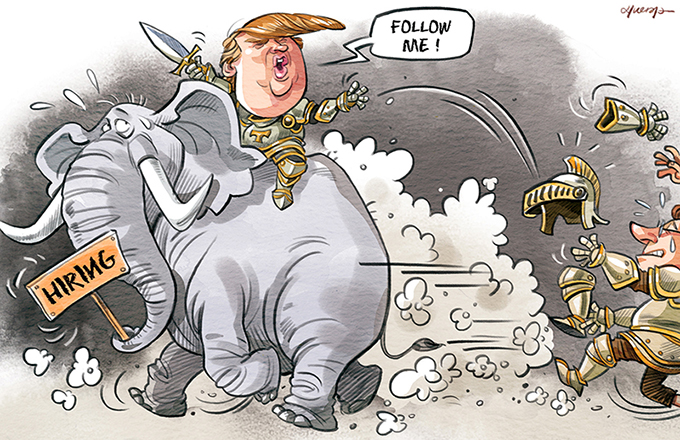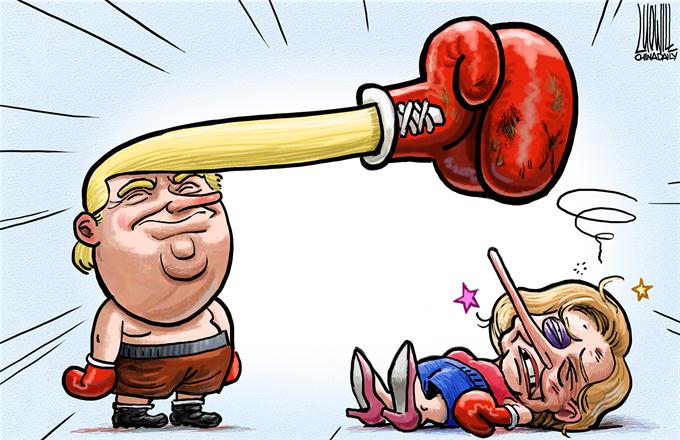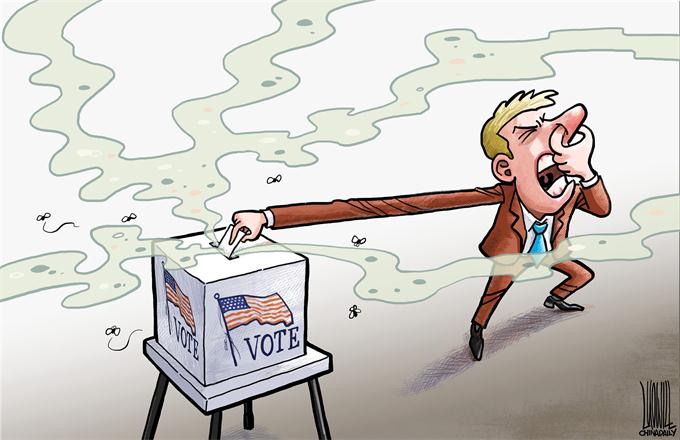Sino-US relations in the Trump era
Chinese observers say the "rebalance" is an attempt to contain China's rise. The recent US rhetorical focus on strengthening alliances in the western Pacific reinforced this perception.
China has responded to this in its own region with offers to help economically. This was symbolized dramatically with contracts signed for loans and infrastructure during the recent visit of Philippine President Rodrigo Duterte to Beijing. It is part of the Belt and Road Initiative (the Silk Road Economic Belt and 21st Century Maritime Silk Road) of Chinese President Xi Jinping. I call this response by Beijing the Chinese counterbalance to the American rebalance.
Beijing has accompanied this with growth of its military capabilities and activities, including the construction of artificial features in the South China Sea. But since the arbitral tribunal's award in July, Beijing has been expressing its desire "to turn the page", and the decibel levels of official pronouncements on both sides have declined.
Trump's election is an opportunity for the US and China to construct an explicitly cooperative agenda. The goal should be to establish a positive context within which to manage the inevitable strategic competition in the western Pacific.
A new approach should start with a calm effort to address specific sources of concern. On the economic side, Beijing should explain and reaffirm its own reform agenda, that as China moves up the economic ladder and consumes more, its markets will open to US exports, services and investment; it will take measures to ensure that dumping of steel and other products is not condoned; and offer credits and cooperation for the US' infrastructure revitalization.
Now that the political gridlock of recent years is about to end, China should project itself as the US' economic partner, to complement and not to compete with the American economy. And since the Trans-Pacific Partnership Agreement is in a coma, China should remind Trump of the potential to unlock opportunity with the Free Trade Area of the Asia Pacific, originally an American idea, now championed by Beijing.
On the security side, China should invite Trump to a Sunnylands-like meeting in the first six months of his term. Trump and Xi are not scheduled to attend international conferences until late in the year, too late if we are to rewrite proactively the Sino-US narrative. So Beijing should use the opportunity to manage the strategic competition and address specific challenges, such as the Democratic People's Republic of Korea's continuing serious provocations during next year's transition period in the US and possibly the Republic of Korea.
These initiatives would be a welcome example of a new type of major country relationship.
The author is vice-president for studies at the Carnegie Endowment for International Peace.
























